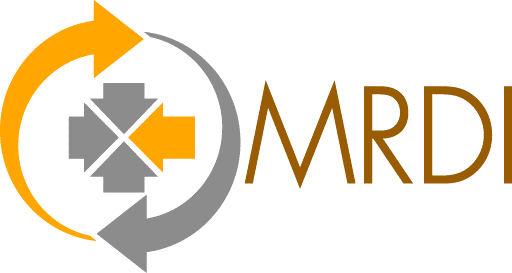
The open market economy is based on a premise of freely flowing information. In fact, information is considered the one asset that could free people and bring about transparency in governance. However, it is due to long held practices of confidentiality and secrecy that such flow of information is often prevented or obstructed. Although the Right to Information Act of 2009 intended to eliminate such undue obstruction, women’s access to information in Bangladesh remains disappointingly bleak due to a wide range of issues from social customs, taboos and unwillingness to share the information.
Looking to mitigate women’s limited access to information, The Carter Center (TCC) partnered with Manusher Jonno Foundation (MJF) in 2016. The three-year project would help women of Bangladesh have better access to their socio-economic rights and improve their position in society by leveraging the power of information. MRDI was an implementing partner of the project where it educated women of Dhaka, Khagrachhari, and Sylhet on their right of access to information.
During the tenure of this programme, MRDI had been in constant collaboration with the Information Commission and the Cabinet Division to help the project bear fruit. Furthermore, the inclusion of local government bodies, civil society and women’s rights groups were also engaged in attaining overall success of the programme. The programme can be categorised into two major parts. On one part, women from low-income backgrounds were armed with the tools of right to information which enabled them to file RTI applications to the appropriate authorities to fix or seek information regarding different irregularities or mismanagement around them. In another part of the initiative, aspiring young women from renowned universities of the country were invited to a week-long boot camp where they were enlightened on the power of information in an interactive learning environment.
The project started to bear fruit within a year and a half as women from poor neighbourhoods took to filing RTI applications. Within two and a half years after the training, the women came forward with their renewed knowledge and applied it to hold the respective authorities at their localities accountable for services they provided to the people. These women filed applications with help from MRDI and managed to change the face of their neighbourhoods. For instance, Jhumur Rine, a resident of Sanir Beel, Adabor, Dhaka, filed an RTI application asking her own school authorities to explain the exorbitant amount they had to pay the school for the SSC exams. Suborna, another participant of the RTI training, had filed an RTI asking the authorities to repair the culvert in their locality of Khilgaon, Dhaka. From fighting mosquito menace to saving the neighbourhood from drugs, the participants wanted to file various RTI applications about the measures that the authorities were initiating. MRDI had to keep a close eye on the beneficiaries so that their safety was ensured when they filed the applications because the relevant authorities have always felt antagonistic towards such efforts to secure information.
Forty-two female university students, especially from two of the reputed public universities were engaged in a three-day training which is another significant initiative of the project. A group of RTI change makers from slum areas of the city were invited to share their experience with the young trainees. The boot camp stretched beyond the training itself and developed into a study circle led by MRDI to regularly keep abreast of new ways the participants were using their RTI knowledge. As a result of this project, young women began making their educational institutions better and more transparent. Some helped their communities improve. Together, information contributed towards transparency and accountability. And all of that by women.



